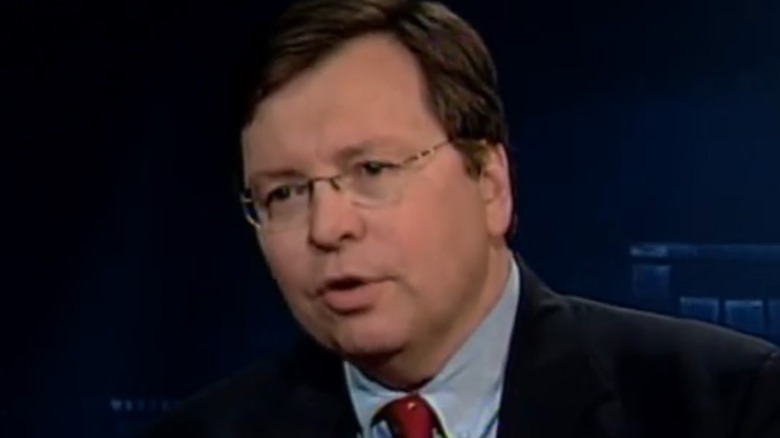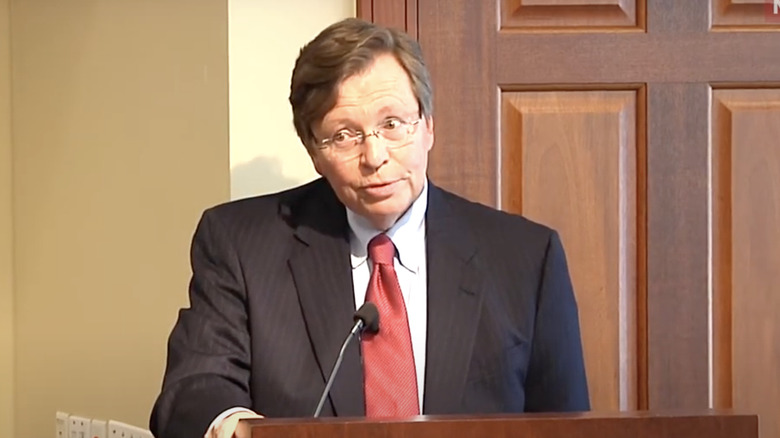The Frustrating 60 Minutes Experience That Made Chuck Lewis Quit
After starting off as a journalist for ABC News in the late 1970s, Chuck "Chuck" Lewis started to gain traction as a national investigative reporter (via Politico Magazine). In his 2014 book, "935 Lies: The Future of Truth and the Decline of America's Moral Integrity," Lewis said it was the start of a "dream job," working to provide hard-hitting truthful stories about what was happening in America and challenging the powerful who would try to get away with wrongdoings. This would lead him to be offered other opportunities, including a job with "60 Minutes" in 1984 as a producer for investigative segments.
Lewis' accepted the offer as he knew, like most people at the time, that "60 Minutes" was highly-respected. "Of course, I had followed his network career for many years and was fully aware that '60 Minutes' was the highest-rated, most honored network news program in the history of television," Lewis said of former CBS News correspondent Mike Wallace and the program.
Even today, CBS' website describes "60 Minutes" as "the most successful broadcast in television history." Whether it was the whistleblowing on tobacco products in 1996 or studying police officers who work with the Mafia in 2006, "60 Minutes" has been the source for some of the most talked about stories in news (via Ranker).
However, Lewis wouldn't be at the program for long, as he decided to quit "60 Minutes" in the late 1980s after one specific experience.
Chuck Lewis quit '60 Minutes' after an experience with a Foreign Agent segment
According to Lewis' "935 Lies: The Future of Truth and the Decline of America's Moral Integrity," via Politico, he quit "60 Minutes" after having a negative experience with a "Foreign Agent" segment. Lewis explained that the investigation was on former U.S. officials using their position to provide investment banking services to foreign institutions. "My last '60 Minutes' segment, 'Foreign Agent,'featured well-known former U.S. officials and presidential campaign aides from both parties who were cashing in on their political connections by working as lobbyists or investment bankers for foreign entities," Lewis explained in his book. Ultimately, this would lead him to discover connections to an investment firm called Blackstone and its CEO Pete Peterson.
Lewis said that Peterson was a close personal friend of Don Hewitt's — the man who started "60 Minutes" and Lewis' boss. Lewis seemed to insinuate that he was then essentially bullied into removing Peterson's name and replacing it with another Blackstone executive's name so Hewitt's relationship with Peterson wasn't compromised. Lewis viewed this as a moral wrong and manipulation of the truth, something that he had experienced all too often in his journalistic career. It would ultimately be the last straw, and he resigned the morning after the broadcast of "Foreign Agent."
In his book, Lewis also said he then republished the full version of "Foreign Agent" after leaving "60 Minutes" with his non-profit, "The Center for Public Integrity."
He is now a retired journalism professor (via American University).

